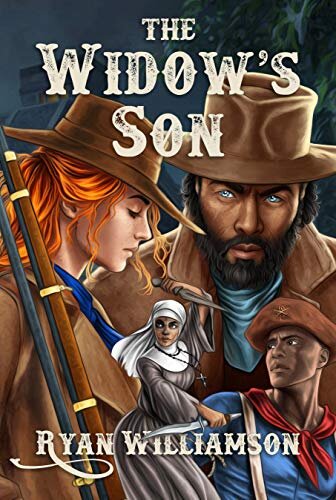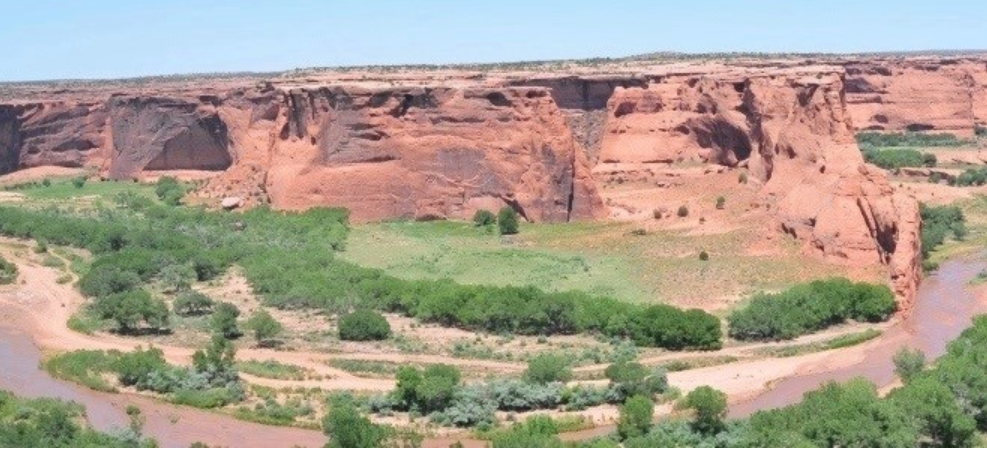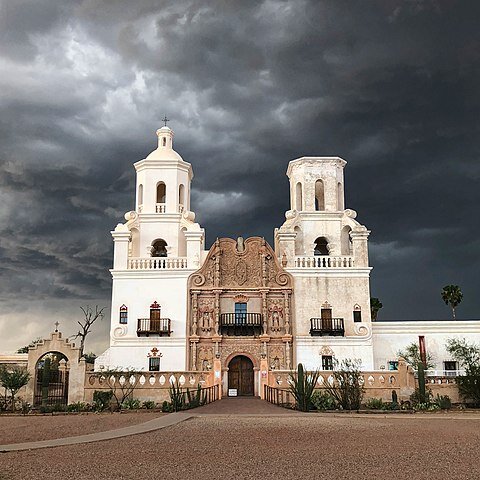The Widow's Son by Ryan Williamson Book Review
The Widow’s Son by Ryan Williamson [Amazon link] is a weird western, a tradition going back to at least to Robert E. Howard’s “The Horror from the Mound”. Westerns were popular for more than a century, oftentimes [loosely] inspired by the real-life adventures of men like Kit Carson, but where usually about more mundane conflicts. I have to imagine that tales of monsters, disappearances, and generally strange stuff were repeated around plenty of campfires and on long walks across the wild places of the American West. This book is a worthy addition to that tradition.

The Widow’s Son by Ryan Williamson March 18, 2021
I am of course a sucker for anything set around my home, and The Widow’s Son opens in northeastern Arizona as Zarahelma Two Crows, the guy with the spooky blue eyes on the cover, is escorting a Navajo prisoner to Albuquerque. This is the post-Civil War west, where Kit Carson’s campaign to starve the Navajos into submission has only recently been completed, but it rapidly becomes clear that this is not quite the West of history. Fierce creatures and heroes of legend mingle with steam-powered mechanized cavalry and the hallmark of alternative history, airships.
Fortunately, Zarahelma Two Crows is the knight errant of the Southwest, part of the recently founded Occult Research Bureau. Zarahelma is pretty uncanny himself, although he is entirely on the side of the angels. With a quick gun and quicker fists he is there to see justice done when the monsters come calling on the common folk of the Southwest. He thought he was simply doing his job by chasing after some skinwalkers who kidnapped a child, but he will find himself sucked into an continent-spanning apocalypse of ethnic revenge.

Canyon de Chelly
The Southwestern United States of the 1860s truly was the wild west. Disparate cultures were clashing together and everything was in continual flux. This book comes into that volatile environment with the premise that all the myths and legends are true, and they interact with history. Events in the American Southwest in the 1860s determined the destiny of the people living there in our world, so this seems a plausible point at which to set the story in motion.
There is a wealth of well-considered anthropological and historical detail in the book, but it is deftly weaved in to a classic western tale of good and evil. A touch in The Widow’s Son that I found entirely appropriate was untranslated snippets of dialogue in any and all of the tongues you might have found spoken in the area from Arizona to Louisiana in the 1860s. Usually, you can get a pretty good idea of what might be going on from context, but the ever present risk of getting yourself in trouble by not being able to understand or make yourself understood was a fine bit of worldbuilding. There were also little details like the habit of Navajo to point with their lips, as pointing with your fingers was [and is] considered rude and even tantamount to magical assault. And in this world, that isn’t an idle complaint. Strange things lurk in the vastness of the American west, and lots of them are plenty unfriendly.

San Xavier del Bac
By Keyany - Own work, CC BY-SA 4.0, https://commons.wikimedia.org/w/index.php?curid=82685371
The Widow’s Son also seems to be a very Catholic book. I think this is appropriate, as the Catholic faith had been a part of the American Southwest for at least three centuries by the time period in question. As this is mostly an adventure book, the sacramental reality of the Church is mostly used as a tool to smite evil things, but I felt it was generally well done.
Where I have complaints about The Widow’s Son is that I feel a lot of interesting speculation about this fascinating world that Williamson has created never really got explored. I have taken the editorial position here at With Both Hands that science, fiction, fantasy and horror are all fundamentally adventure stories that seek give us the emotion of wonder. However, the speculative elements of this genre as practiced in the last couple of centuries really can enhance this goal.
I’m going to get all spoilery here, so consider yourself warned. The Southwest that Williamson started with is recognizably like ours, but by the end of the book, Mexico and the American West have been depopulated, Catholic priests are embedded in US Army units to provide organic sacramental support, and a unit of mechanized Buffalo soldiers has invaded the Yucatan to drive back the demons of Hell. That is quite a fork in history, and it would be interesting to see what kind of world might result. However, what we get is the hero gets the girl and sails off into the sunset. I’m not complaining about that, I would like to see more heroes enjoying their just reward. What I would like to see is this great setup turned into another world where the Native tribes reclaim abandoned territory and the US has become Catholic in a baptism of fire. I’d love to read that book, especially given Williamson’s ability to do historical details that I find interesting.
There are hints of strange politics in the US around the Occult Research Bureau that would be interesting too, but I wonder whether those things were just obstacles placed in the hero’s path rather than intentional world-building. I think there is a lot of great material here that could be really fun as a series. What I don’t know is whether Williamson is interested in writing such a thing. I suspect buying the book would help, but I also can’t impose my preferences on the author. At the very least, read the book if you like this kind of thing. I certainly do.
Find out more about the author at https://ryanwilliamson.com/



Comments ()